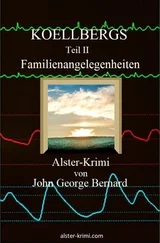John George Wood - Bible Animals
Здесь есть возможность читать онлайн «John George Wood - Bible Animals» — ознакомительный отрывок электронной книги совершенно бесплатно, а после прочтения отрывка купить полную версию. В некоторых случаях можно слушать аудио, скачать через торрент в формате fb2 и присутствует краткое содержание. Жанр: foreign_prose, foreign_religion, Философия, foreign_psychology, foreign_antique, на английском языке. Описание произведения, (предисловие) а так же отзывы посетителей доступны на портале библиотеки ЛибКат.
- Название:Bible Animals
- Автор:
- Жанр:
- Год:неизвестен
- ISBN:нет данных
- Рейтинг книги:3 / 5. Голосов: 1
-
Избранное:Добавить в избранное
- Отзывы:
-
Ваша оценка:
- 60
- 1
- 2
- 3
- 4
- 5
Bible Animals: краткое содержание, описание и аннотация
Предлагаем к чтению аннотацию, описание, краткое содержание или предисловие (зависит от того, что написал сам автор книги «Bible Animals»). Если вы не нашли необходимую информацию о книге — напишите в комментариях, мы постараемся отыскать её.
Bible Animals — читать онлайн ознакомительный отрывок
Ниже представлен текст книги, разбитый по страницам. Система сохранения места последней прочитанной страницы, позволяет с удобством читать онлайн бесплатно книгу «Bible Animals», без необходимости каждый раз заново искать на чём Вы остановились. Поставьте закладку, и сможете в любой момент перейти на страницу, на которой закончили чтение.
Интервал:
Закладка:
Among the animals that are forbidden to be eaten by the Israelites we find the Bat prominently mentioned, and in one or two parts of Scripture the same creature is alluded to with evident abhorrence. In Isaiah ii. 20, for example, it is prophesied that when the day of the Lord comes, the worshippers of idols will try to hide themselves from the presence of the Lord, and will cast their false gods to the bats and the moles, both animals being evidently used as emblems of darkness and ignorance, and associated together for a reason which will be given when treating of the mole. The Hebrew name of the Bat is expressive of its nocturnal habits, and literally signifies some being that flies by night, and it is a notable fact that the Greek and Latin names for the bat have also a similar derivation.
In Lev. xi. 20, the words, "All fowls that creep, going upon all four, shall be an abomination unto you," are evidently intended to apply to the bat, which, as is now well known, is not a bird with wings, but a mammal with very long toes, and a well developed membrane between them. Like other mammals, the Bat crawls, or walks, on all four legs, though the movement is but a clumsy one, and greatly different from the graceful ease with which the creature urges its course through the evening air in search of food.
Perhaps the prohibition to eat so unsightly an animal may seem almost needless; but it must be remembered that in several parts of the earth, certain species of Bat are used as food. These are chiefly the large species, that are called Kalongs, and which feed almost entirely on fruit, thus being to their insectivorous relatives what the fruit-loving bear is among the larger carnivora. These edible Bats have other habits not shared by the generality of their kin. Some of the species do not retire to caves and hollow trees for shelter during their hours of sleep, but suspend themselves by their hind legs from the topmost branches of the trees whose fruit affords them nourishment. In this position they have a most singular aspect, looking much as if they themselves were large bunches of fruit hanging from the boughs. Thus, they are cleanly animals, and are as little repulsive as bats can be expected to be.
But the ordinary bats, such as are signified by the "night-fliers" of the Scriptures, are, when in a state of nature, exceedingly unpleasant creatures. Almost all animals are infested with parasitic insects, but the Bat absolutely swarms with them, so that it is impossible to handle a Bat recently dead without finding some of them on the hands. Also, the bats are in the habit of resorting to caverns, clefts in the rocks, deserted ruins, and similar dark places, wherein they pass the hours of daylight, and will frequent the same spots for a long series of years. In consequence of this habit, the spots which they select for their resting place become inconceivably noisome, and can scarcely be entered by human beings, so powerful is the odour with which they are imbued.
Sometimes, when travellers have been exploring the chambers of ruined buildings, or have endeavoured to penetrate into the recesses of rocky caves, they have been repelled by the bats which had taken up their habitation therein. No sooner does the light of the torch or lamp shine upon the walls, than the clusters of bats detach themselves from the spots to which they had been clinging, and fly to the light like moths to a candle. No torch can withstand the multitude of wings that come flapping about it, sounding like the rushing of a strong wind, while the bats that do not crowd around the light, dash against the explorers, beating their leathery wings against their faces, and clinging in numbers to their dress. They would even settle on the face unless kept off by the hands, and sometimes they force the intruders to beat a retreat. They do not intend to attack, for they are quite incapable of doing any real damage; and, in point of fact, they are much more alarmed than those whom they annoy. Nocturnal in their habits, they cannot endure the light, which completely dazzles them, so that they dash about at random, and fly blindly towards the torches in their endeavours to escape.
If, then, we keep in mind the habits of the bats, we shall comprehend that their habitations must be inexpressibly revolting to human beings, and shall the better understand the force of the prophecy that the idols shall be cast to the bats and the moles.
There is another, and a very forcible passage, in which the Bat is mentioned. In the apocryphal book of Baruch, the Bat is used as a lively image of something peculiarly repulsive and hateful. Baruch was the secretary and faithful friend of Jeremiah the prophet, and Chapter VI. of the book of Baruch purports to be an epistle of Jeremiah to the captive Jews about to be led away to Babylon. After showing that they had brought their fate upon themselves by neglecting the worship of the true God, and prophesying that they would remain in captivity for seven generations, the writer proceeds, in a strain of scathing and sustained satire, to deride the idols which they had adored, and to censure the infamous ceremonies that formed part of the worship.
After describing the idols, made splendid with silver and gold, whose hands hold sceptres, and axes, and wands, and yet cannot save themselves from robbers; whose tongues are polished by the workman and yet cannot speak a word; whose eyes are covered with dust which they cannot wipe off for themselves; he proceeds as follows: "Their hearts are gnawed upon by things creeping out of the earth; and when they eat them and their clothes they feel it not. Their faces are blacked through the smoke that cometh out of the Temple. Upon their bodies and heads sit bats, swallows and birds, and the cats also. By this ye may know that they are no gods; therefore fear them not."
It is not to be expected that so strange looking an animal as the Bat would escape mention in the legends which are so plentiful in the East.
Signor Pierotti, who has done such signal service in the investigation of the Holy Land, gives a most remarkable semi-Mahommedan and semi-Christian legend respecting the origin of the Bat. The Mahommedans, unlike the generality of Jews, have always respected the memory of our Lord Christ—the Prophet Isa, as they call Him—ranking Him as one of the greatest of God's prophets, though they deny His actual divinity. In this curious legend, they have confused the forty days fast in the wilderness with the enforced Mahommedan fast called Ramadhan, much as the writers of the apocryphal gospels attributed to the holy family and the apostles certain phrases and acts of worship which were not in existence until several centuries after the Christian era.
Towards the west of Jericho, there is a mountain which is identified both by Christians and Mahommedans as being the spot to which our Lord retired during his passion, and which, in consequence of this supposition, is called Kuruntun, or Quarantine.
The reader, while perusing the following legend, must bear in mind that the fast of Ramadhan lasts for a month, and that from sunrise to sunset an entire abstinence from all kinds of nourishment is imperative upon all good Mussulmans. Even such luxuries as smoking or inhaling perfumes are forbidden, and although washing is permitted, the head must not be plunged under water, lest a few drops might find their way through the nostrils. In consequence of this strict prohibition, the moments of daybreak and sunset are noted with the most scrupulous care, the tables being set, pipes lighted, coffee prepared, and every luxury being made ready just before sunset, so that as the orb disappears beneath the horizon, the fasting multitudes may not lose a moment in satisfying their wants. A similar anxiety marks the approach of daybreak, because, as the first beams of the sun break through the darkness, neither food nor drink may pass their lips.
Читать дальшеИнтервал:
Закладка:
Похожие книги на «Bible Animals»
Представляем Вашему вниманию похожие книги на «Bible Animals» списком для выбора. Мы отобрали схожую по названию и смыслу литературу в надежде предоставить читателям больше вариантов отыскать новые, интересные, ещё непрочитанные произведения.
Обсуждение, отзывы о книге «Bible Animals» и просто собственные мнения читателей. Оставьте ваши комментарии, напишите, что Вы думаете о произведении, его смысле или главных героях. Укажите что конкретно понравилось, а что нет, и почему Вы так считаете.












